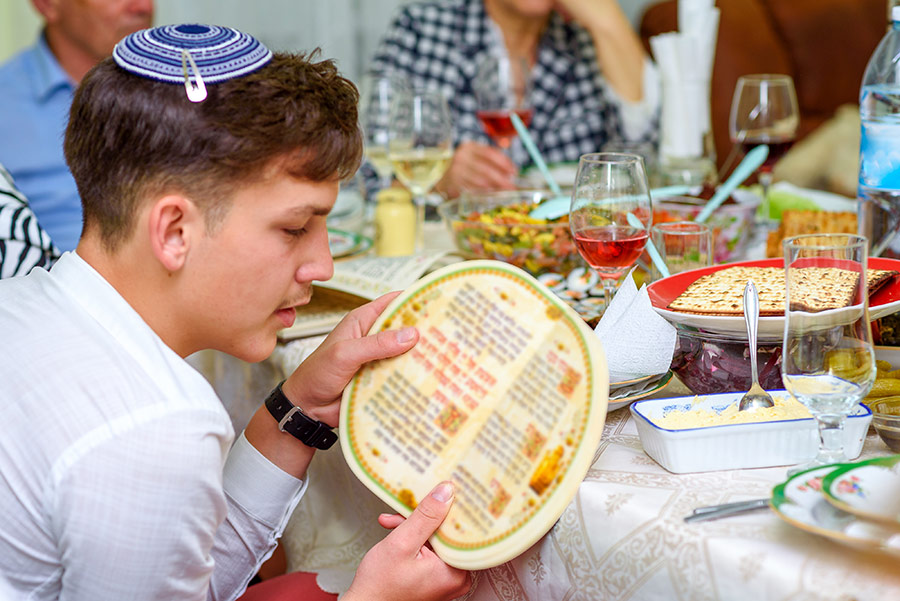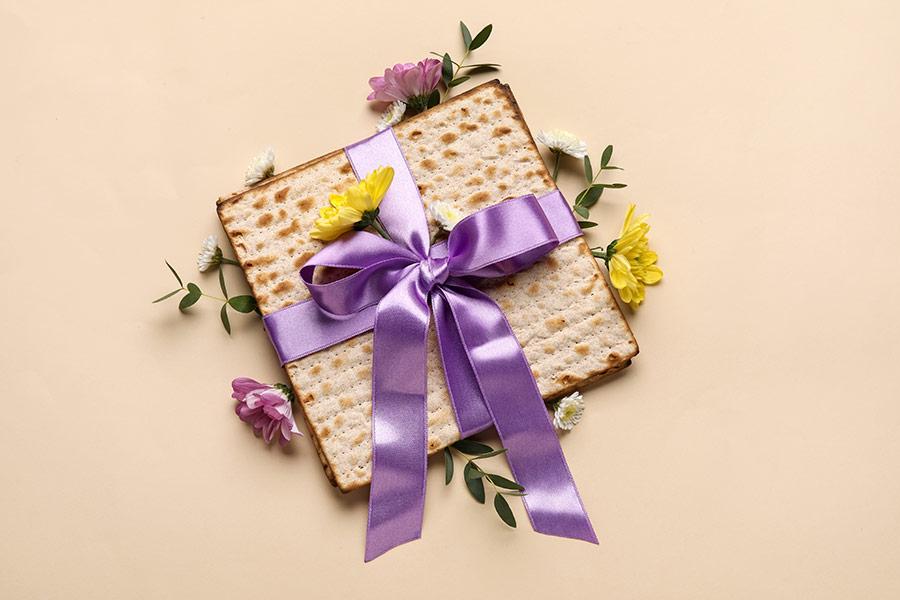Passover is a major Jewish holiday, also known as Pesach, from the Hebrew for “pass over” (meaning “to skip” or “to leave out”). Because it is determined by the lunar calendar, the week-long celebration takes place on different dates of the more commonly used solar calendar every year, beginning and ending at sundown. See our previous article on Passover for more information on the origins of the holiday and how it’s typically observed.
An important part of the Passover celebration is the Seder meal (Hebrew for “order”, as in the specific steps of the observance) with family and friends. The food and wine served on a Passover Seder plate are in small portions, in a special arrangement, and symbolic of different aspects of the Jewish exodus from Egypt:

● Maror and Chazaret: bitter herbs to represent the cruelty of slavery, the former usually placed in the middle of a plate.
● Karpas: parsley or another green vegetable symbolizing spring and hope, usually dipped in salt water, symbolizing tears.
● Beitzah: roasted hard-boiled egg representing new life and the festival sacrifices of lamb once made on holidays.
● Zeroa: roasted lamb shank bone to represent lamb’s blood, the signal for the Angel of Death to “pass over” a home.
● Charoset: a sweet brown paste symbolizing the clay used by Hebrew slaves to build the structures of Egypt, it can be made from chopped nuts, fruit, honey or wine, and cinnamon with variations.
In the story of the Exodus, the Hebrews escaped Egypt with only unleavened bread, represented on the seder table by three matzah crackers. All present are also typically expected to drink four cups of kosher wine.
Inviting guests to the Seder is encouraged; if, as a non-observer, you are invited to join in the festivities, ask your host what is best to do regarding proper behavior, gifts, expected attire, etc. Every family’s traditions can differ!

Schools may be closed/colleges may cancel classes for the first and second days of Passover, but this is not guaranteed, so students should check with their school/professor to make sure or to request the time off to celebrate. Businesses, government buildings, and banks will usually operate on normal hours. However, in traditional observance of Passover, no work or travel is permitted on the first two and last two days of the holiday, so employers should be prepared to accommodate observant employees.
If you have any questions or concerns, contact us anytime at info@gravityintprog.com. Stay safe and healthy, and Chag Pesach Sameach!






